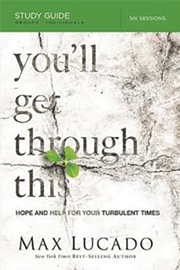Professional Growth and Development | With Industry Leaders
What Are You Reading?
HV Mfg asked the manufacturing community to recommend a book, article, or podcast that impacted them personally or professionally.
Chris Shaw
General Manager SIG
(Sheehan International Group)

The Title: Bad Blood
The Author: John Carreyrou
A Brief Summary: The book explores the rise and fall of Theranos, a Silicon Valley-based biotech company founded by Elizabeth Holmes. The company promised to revolutionize healthcare with a device that could run a wide range of tests from a single drop of blood. However, the technology never worked as claimed, and Holmes, along with her partner Sunny Balwani, engaged in deception to maintain the façade of success. The book details how the truth unraveled, leading to the company’s collapse and criminal charges against its leaders.
In What Ways Did You Find It Valuable or Impactful: The book was a valuable reminder to be humble no matter how much outward success you achieve. Hubris, self-righteousness, and unrealistically lofty goals can lead business leaders, employees and investors down a slippery slope toward unethical and even illegal behavior.
Elizabeth Holmes did not start Theranos to defraud people, but her ego and unwillingness to countenance setbacks led her to become a toxic leader, lie about her company’s capabilities and ultimately cause great harm the medical patients she set out to help with her technology.
I also found the book to be an engaging study of human susceptibility to charisma, peer pressure and “FOMO”, especially in a Silicon Valley culture that lionizes egotistical risk-takers and diminishes prudence and good-faith dissent as intolerable impediments to progress.
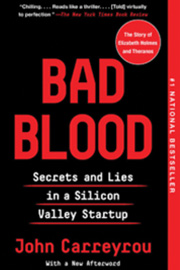
Dylan Haas
Account Executive
nrg

The Title: The Black Swan: The Impact of the Highly Improbable
The Author: Nassim Nicholas Taleb
A Brief Summary: Nassim Nicholas Taleb, a former option trader, risk analyst, quant, and statistician, details in this book about how our world is dominated by improbable events. He defines a “Black Swan” as an event characterized by extreme rarity, significant impact, and the tendency to be rationalized after the fact. He talks about human psychology and that humans tend to fall short due to confirmation bias, narrative fallacies, and ludic fallacies which are traits that we innately have. With the concept of Black Swans fleshed out and acknowledgment of human cognitive biases, Taleb then criticizes traditional methods of risk assessment and probability. This then leads into the concept where he suggests building systems and businesses that are able to benefit from these shocks and volatility. This is expanded on further in his second book “Antifragile”.
In What Ways Did You Find It Valuable or Impactful: I work in the energy industry and have helped countless organizations with their gas and power procurement. In case you haven’t noticed, energy tends to be a volatile industry. Thinking about the way Black Swans have impacted this industry over the last two decades, or even just the last 3 years, helping other companies deal with this volatility is where I excel. Considering the potential Black Swans means considering how to have a flexible but strong energy procurement strategy. Personally, I also incorporate these teachings into my investments along with consistent learning so I can be prepared for the unexpected.
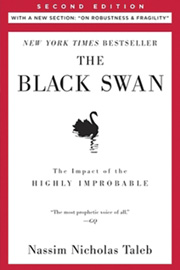
Johnnieanne Hansen
Vice President
The Council of Industry
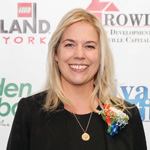
The Title: Leadership in Turbulent Times
The Author: Doris Kearns Goodwin
A Brief Summary: In this book, Doris Kearns Goodwin explores the lives and careers of four American presidents—Abraham Lincoln, Theodore Roosevelt, Franklin D. Roosevelt, and Lyndon B. Johnson—analyzing how they each developed and demonstrated leadership during pivotal moments in American history. Drawing on her extensive research and storytelling expertise, Goodwin delves into the personal challenges and crises each leader faced, highlighting their ability to navigate complex situations with resilience, vision, and empathy. Through their stories, she identifies common traits and strategies that define effective leadership, offering timeless lessons for today’s leaders.
In What Ways Did You Find It Valuable or Impactful: The book underscores the importance of resilience and the ability to adapt in the face of adversity, crucial traits for any leader. Each president’s story illustrates how personal experiences and challenges shape and strengthen one’s leadership style, making their journeys relatable.
What I found particularly valuable was the emphasis on empathy and connection with others. Goodwin’s portrayal of these leaders shows that effective leadership is not just about strategic thinking and decision-making; it also requires a deep commitment to understanding and serving the people you lead.
This is especially relevant today, where leaders at every level face complex and rapidly changing environments.
The book also highlights the importance of surrounding oneself with diverse perspectives. As Goodwin notes, “Good leadership requires you to surround yourself with people of diverse perspectives who can disagree with you without fear of retaliation.” This quote resonated with me as it captures the essence of leadership—valuing different viewpoints and fostering an environment where difficult conversations are welcomed.
Overall, Goodwin’s book serves as a powerful reminder that the most impactful leaders are those who not only guide others through challenging times but also build strong, trust-based relationships that endure long after the immediate crisis has passed.
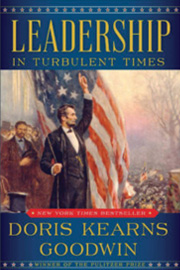
Joseph Ferraro
President
Elna Magnetics

The Title: Choose Your Enemies Wisely
The Author: Patrick Bet-David
A Brief Summary: In Choose Your Enemies Wisely the author explores all the right and wrong enemies that you face in starting and running your business. He goes into detail about each one, as well as pointing out that some enemies are not the right ones to attack, while others are.
Patrick Bet-David has a unique definition of the word “enemy”, which took me a while to uncover while reading the book. Initially I took the word in its literal sense and then realized that the enemies are all those people, things or forces that are in the way of your business success.
The book focuses on the idea that your competition is not always your enemy or where you should focus. Identifying your real enemies is key to success.
In What Ways Did You Find It Valuable or Impactful: I found this book very valuable because it forces you to take a totally different look at your business and what forces you need to focus on for success. The twelve building blocks of success—enemy and competition, will and skill, mission and plan, dreams and systems, culture and team, and vision and capital—offer essential elements to focus on, helping one avoid distractions and “less important” things.
I found this book inspiring because it encourages you to take a different, deeper look at your business, even if it’s already successful. It pushes you to reevaluate your focus, identifying areas that may need more attention, while also helping you realize that some aspects you’ve prioritized may not be as important as you once thought.
We ended up providing a copy to all four stockholders of Elna and asked them to read it. We continue to discuss it from time to time and plan on continuing those discussions.
The book is a very easy read that makes you want to keep reading and get to the next chapter which is yet another building block in the process. I recommend it to anyone that owns or runs a business regardless of its size. It applies to all people and all businesses.
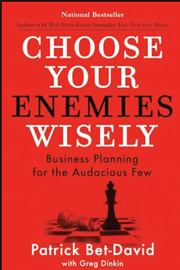
Steffen Kaldor
Engineering Director
onsemi

The Title: Getting to YES, Negotiating Agreement Without Giving In
The Author: Robert Fisher, William Ury, and Bruce Patton
A Brief Summary: Getting to Yes is a practical guide for principled and effective negotiation. It describes a strategy and method for negotiating mutually beneficial agreements. The authors’ method consists of separating the people from the problem, focusing on interests rather than positions, brainstorming diverse options for mutual gain, and using objective criteria to assess options.
A successful negotiation requires time up front, before diving into the problem, to separate the parties’ relationship from the substantive discussion. Spend time understanding perceptions, emotions, fears, and values; cooperatively define a process for the negotiation; and communicate clearly and purposefully. Ideally, negotiators should view themselves as partners, working side-by-side to invent a fair, mutually advantageous solution.
Rather than focusing on bargaining for positions, Fisher, Ury, and Patton suggest focusing on a mutual understanding of the interests that have led parties to certain positions. Brainstorming is important to generating numerous options, and it is important to separate the invention and evaluation of these ideas into separate activities. Ultimately, attractive options satisfy the interests of both parties and can be phrased such that they can be responded to with a single word, “yes.” Rather than talking about what they are willing or unwilling to accept, it’s important to use customs, precedents, and independent standards of fairness, efficiency, and science to structure and assess options.
In What Ways Did You Find It Valuable or Impactful: Life is a negotiation, and we have to influence and negotiate on a daily basis. You discuss a raise with your boss. Technicians and engineers in a manufacturing line try to choose and prioritize different methods for improving turnaround time. Engineering and manufacturing managers try to agree on how to strike the right balance between product quality, cost, and cycle time.
I sometimes view negotiation negatively or stressful, worried I won’t get what I want, I’m not powerful enough, I’m too hard or soft, I’ll let my team down, compromise my values, lose my cool, or damage a relationship. Getting to Yes, an easy and quick read, is a very useful guide for principled negotiation. Rather than using tricks, posturing, or “heels dug in” bargaining, it emphasizes the importance of team relationships, deciding issues on their merits, and collaboratively reaching wise and fair agreements. Each time I read the book, it’s a good reminder of how important effective team communication and problem solving are to coming up with mutually beneficial and innovative solutions.
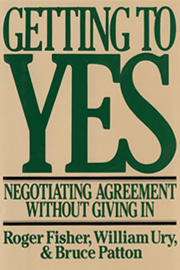
Nancy Proyect Rider
President
NoMo Consulting, LLC

The Title: From Strength to Strength
The Author: Arthur C. Brooks
A Brief Summary: At the age of 50 and at the height of his career, Arthur C. Brooks embarked upon a seven-year journey to discover how to transform his future from one of disappointment over diminishing professional abilities into an opportunity for a new direction. Drawing on social science, philosophy, theology, and interviews with everyday people, Brooks contends that true life success is well within our reach. By refocusing on certain priorities that all of us can integrate into our lives, we can set ourselves up for increased happiness and success.
In What Ways Did You Find It Valuable or Impactful: I love reading fiction. Nonfiction reminds me of school, and while I liked the things I learned in school, I didn’t like the actual reading involved in that learning. A few years ago, a cousin who I am particularly close with, was going through a professional transition and told me that he had found a book that was very helpful to him. I wasn’t interested, being quite happy in my own job, but to be supportive, I read it.
It was an engaging and thought-provoking read on how to embrace and capitalize upon changes that are unavoidable as we age. I promised myself that I would incorporate the author’s recommendations in my life and then I moved on, doing nothing of what I said I would. Two short years later, I found myself thrust unexpectedly into my own transition at the age of 54. Suddenly the very rewarding path that I had worked hard to carve out for myself over the previous 25 years felt murky and was no longer clear. I needed support and found it when I picked up From Strength to Strength again.
The simple message is that how we each perceive, prepare for, and embrace change is key to how we find purpose and joy in the second half of our lives. Once I remembered that, I felt like I had found solid ground again and I shifted away from worrying about my age and quantifiable accomplishments to really exploring a second act that would make me happy and allow me to continue to contribute to my community. I’m happier now than I ever imagined I’d be. I strongly recommend reading the book before you’re caught off guard – maybe even pick it up today.
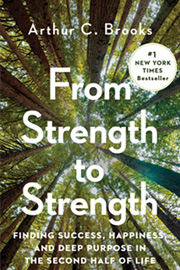
Chris Short
Talent Development Associate Manager
Gap, Inc.

The Title: Shackleton’s Way: Leadership Lessons from the Great Antarctic Explorer
The Author: Stephanie Capparell and Margot Morrell
A Brief Summary: Sir Ernest Shackleton has been called “the greatest leader that ever came on God’s earth, bar none” for saving the lives of the twenty-seven men stranded with him in the Antarctic for almost two years. Because of his courageous actions, he remains to this day a model for great leadership and masterful crisis management.
Now, through anecdotes, the diaries of the men in his crew, and Shackleton’s own writing, Shackleton’s leadership style and time-honored principles are translated for the modern business world. Written by two veteran business observers and illustrated with ship photographer Frank Hurley’s masterpieces and other rarely seen photos, this practical book helps today’s leaders follow Shackleton’s triumphant example.
In What Ways Did You Find It Valuable or Impactful: In today’s ever changing business landscape it is important to recognize the value of leadership during times of trouble. In many ways this book and its lessons within, are a testament to solid leadership principles that directly translate from the great explorer Ernest Shackleton in 1914 to today’s business landscape of 2024.
Shackleton set out on a very ambitious goal of transversing Antarctica at a time when the world looked for heroes. Although he never saw his vision completed successfully, his ability to lead his crew, protect them from the harsh climate and grueling conditions solidified him as a true leader. As the captain of his ship, the Endurance, his exemplary leadership skills focused on strategic thinking, problem solving and his crew’s wellbeing. These lessons in leadership have echoed through time to reach today’s modern audience.
This book outlines his unique leadership philosophy focusing on team recruitment and cohesion, crisis management, daily leadership practices, innovation, and adaptability. His methods can easily be applied to any challenge we may face in today’s culture. I feel his success lies within how he developed his crews’ interpersonal skills much more than counterparts of his era. By focusing on more than just his crew’s technical sea faring aptitude, he was able to identify, build and develop a high performing team that could withstand tremendous adversity with grit, camaraderie, and determination.
This is a must read for anyone on their journey towards developing others through exemplary leadership while facing adversity.
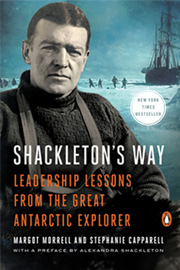
Rachel Parker
President
Fair Rite Products

The Title: You’ll Get Through This
The Author: Max Lucado
A Brief Summary: Max Lucado is a Pastor and best-selling Christian author who has written dozens of books with over 150 million copies sold worldwide. This book is based on the story of Joseph and chronicles his life alongside the message: “You’ll get through this. It won’t be painless. It won’t be quick. But God will use this mess for good. In the meantime don’t be foolish or naïve. But don’t despair either. With God’s help you will get through this.”
Max does a phenomenal job interlacing various examples from his life and the lives of others into the story of Joseph to amplify the message of this book: what others intend for evil, God will use for good. It may take a while and hurt a lot, but by keeping the faith and not becoming distracted or discouraged great things can happen!
In What Ways Did You Find It Valuable or Impactful: As a business leader, mother, wife, daughter, and countless other roles, there are times when the weight of the world can feel crushing. The power has failed (again!) and a full kiln load of product will need to be scrapped resulting in late orders and angry customers, or my daughter struggles with sensory issues and can’t control her outbursts on the bus despite our best efforts to get her help, or I’m managing shattering conflict while trying to run the family business. What a mess!
What this book helped me realize is that I have a choice. I can choose to become discouraged, disengaged, angry and bitter, wondering why this is happening to me. Or I can choose the better path by asking “what is God trying to teach me with these trials?”. Reframing a situation in this way provides a profound level of hope and encouragement.
I’ll get through this with God’s help. That doesn’t mean it’s going to be easy; some struggles can last weeks, months, years or my entire life. However, I must remain resilient and resolute in my intentions. Do what is right, not what feels right. When others inflict harm, don’t live with spite, plot revenge or wallow in self-pity. Practice gratitude and trust in God. While some events are especially gut-wrenching, each one has a purpose, and I am called to maintain my faith as He works on me.
